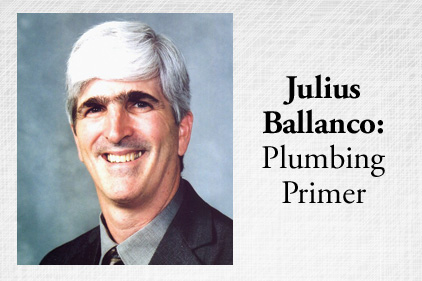
|
| Photo credit: ©istockphoto.com/Jacob Wackerhausen |
I had a recent family trip to Denver. Normally when I travel, I rent cars from Hertz. I know the company, it gives me good cars, the staff is quick and efficient, and there are incentives for returning renters. Plus, Hertz has a great reputation.
Since this trip was coming out of the family budget, I paid attention to the recommendation from the website I used for the airline tickets. It suggested Payless to save on car rental expenses. Out of curiosity, I decided to check the Payless website. Its weekly rental rate came in about $150 less than Hertz. So, thinking that extra money might buy a nice dinner, I decided to try renting from Payless.
It all sounded good until I showed up at the rental office. The service was slow. After waiting, the agent seemed to ignore my reservation from the website. Then she asked about coverage. I said, “No coverage, just like I put on the website reservation form.” So she added a number. When I repeated my mantra of no coverage, she crossed it out and had me initial the form. She told me not to worry, they would take care of it when I returned the car.
You already know what’s coming. Yup, I got nicked for an extra $250 when I returned the car. When I complained, the company said the agent circled the amount and I signed it. As I argued, I realized it was useless to deal with such a company. It was playing games and really didn’t have cheaper cars. In the long run, the car I rented cost more than my trusty Hertz rental car.
It should have been called PayMore, not Payless.
So what does this have to do with plumbing? Some contractors operate like Payless, while others operate like Hertz. What am I talking about?
You have some contractors who bid a job properly. They look at the construction documents and put together an honest bid. Other contractors play games. They lowball a contract and hope to make a profit through extras. They make sure that, if they win the bid, they can put in for many extras at a much higher profit margin.
The problem for these lowball contractors is that the architects, engineers and project managers know their game. They are tired of the game. Other than public projects, the extras have become a hardship. For public projects, too many contractors, and even project managers, assume it’s just tax money, so who cares. Well, as a taxpayer, I care.
Revised change order process
Because of the problems associated with extras, the Engineers Joint Contract Documents Committee revised the contract documents associated with change orders and dispute review process. As you know, extras are technically called change orders.
The new documents will require contractors to first submit a change proposal. In the past, a contractor would submit a claim. Of course, the word claim always seems to upset and anger the engineer and project manager. It basically is accusing one or both of making mistakes.
With the change proposal, the contractor has to justify the extra cost and labor. This must be submitted within 15 days of the change proposal. The engineer then has 30 days to either approve or reject the change proposal. The engineer’s decision is final. However, the contractor or owner can appeal the engineer’s decision, which will result in negotiations.
Extra should not be considered a dirty word. Many times a change order or change proposal is necessary. I had a recent project where the sprinkler contractor called and said he was required to move the sprinklers in 30 rooms. The HVAC contractor had located his ductwork differently than the plans indicated and the ducts blocked the sprinkler flow pattern.
I told him to move the sprinklers. He hemmed and hawed until I said, “Don’t worry, you’ll get paid. Just file a change order. I’ll approve it right away.” After hearing that, he said he’d start moving the sprinklers right away.
This was a project where the contractor was warned that there would be no extras and no game-playing. It scared him to the point of worrying whether someone else’s mistake would cost him his profit. Of course not! Even when an engineer or project manager says no extras, a situation could arise where extras are necessary.
It is the “Payless” contractor who has given change orders a bad name. They have, in a way, ruined it for every other honest “Hertz” contractor. It is hoped that the new contract documents will eliminate the anger associated with extras and change orders.
Many of us hope that it will eliminate the Payless contractors who thrive on extras. It is always better to be a Hertz contractor. Build a reputation as an honest contractor who can be trusted and relied on for good work.
Getting back to my rental car debacle, what Payless failed to realize is that I rent between 20 and 25 cars a year with all the traveling I do. One week, I rented three cars in three different cities.
When Payless played its hidden costs game, I was through with it. I can assure you that I will never rent from Payless again. It had a chance to be considered for a lot more car rentals. Instead, it’ll get none. Furthermore, I’ll tell all my friends not to rent from Payless.
I told that to the Payless manager in Denver. He didn’t seem to care.
I will continue to rent cars from Hertz. I know the service and I have never been cheated out of a penny. Why go someplace else? I hope all of you are either Hertz contractors or switch to being Hertz contractors.
Embrace the new contract documents. They are intended to be fair and help contractors when there is a true need for an extra.


